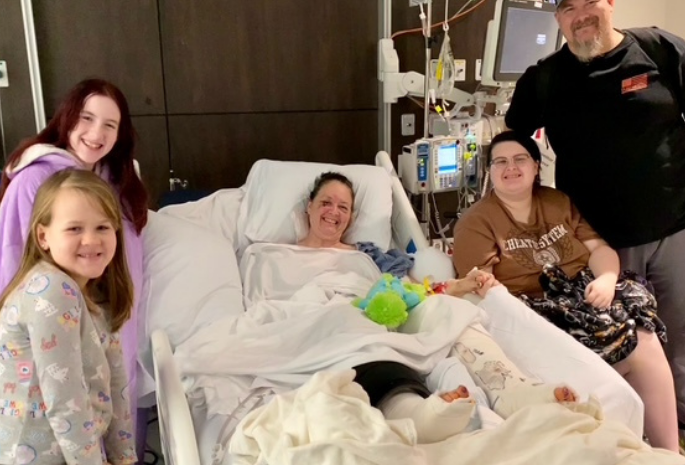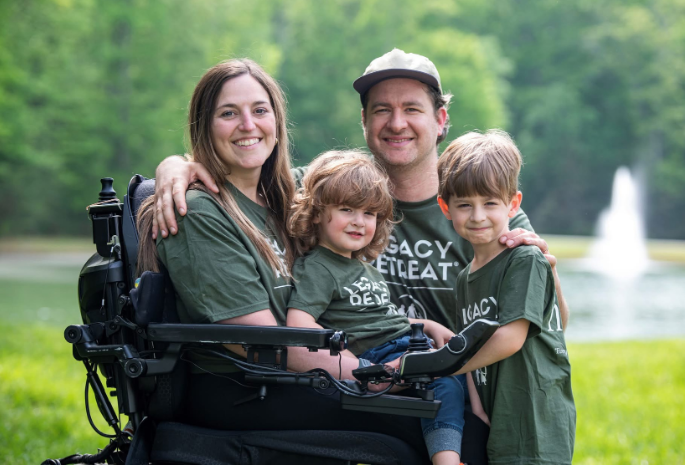Dr. Waller referred Carol to neurosurgeon Tomas Garzon-Muvdi, MD, MsC, director of Emory Pituitary Center. The center treats all pituitary disorders, including cancerous and noncancerous tumors. People come to the center from all over the south for care. Dr. Garzon-Muvdi and neurosurgeon Gustavo Pradilla, MD, perform between five and 10 skull base surgeries a week, many of them pituitary tumor removals.
Dr. Garzon-Muvdi created a treatment plan for Carol, working closely with a neuroendocrinologist (hormonal disease specialist) and an otolaryngologist (ear, nose and throat specialist). He also shared her case with a group of doctors from different fields at Winship’s tumor board, so they could review it together and offer their advice.
“When you come to Emory for a pituitary tumor condition, you don't only get me, you get experts in endocrinology, radiology, otolaryngology and whatever else you need,” Dr. Garzon-Muvdi explains. “Emory has really invested in improving outcomes and making our center a destination for people with pituitary and other skull base tumor surgeries.”
Dr. Garzon-Muvdi performed Carol’s surgery on December 12, 2024. The minimally invasive procedure involved placing endoscopes (thin, rigid tubes) into the nose and advancing tiny cameras and tools through the scopes to the surgical area.
“The goal of surgery is to remove the tumor in one piece,” Dr. Garzon-Muvdi explains. “If we leave even one cell behind, the disease can recur.”
Neurosurgeons almost always use a minimally invasive approach for these tumor resections, which require delicate work near the optic nerves, carotid arteries and brain stem.
“A less invasive approach is critical for people like Carol who are very sick going into the surgery,” Dr. Garzon-Muvdi explains. “It leads to less blood loss and a faster recovery compared to traditional, open surgeries.”
On a Healing Track
Surgery eliminated the problem of the flood of cortisol in Carol’s body. Her symptoms began to subside within a few weeks. She has lost about 20 pounds, and her strength and stamina continue to improve. She still has to use a wheelchair to cover longer distances, but she can manage a trip to the farmer’s market with help from hiking poles.
She and Bruce have started to travel again. Most recently, they recently flew to California to see their newest grandchild. In July 2025, she did her first spin class since becoming ill.
Unfortunately, Carol still deals with significant effects of Cushing’s disease, such as bone loss and heart disease. She has intense back pain from the scoliosis and hopes that corrective surgery will provide relief.
Carol credits her husband, friends and children for supporting her through this profound, life-altering health crisis. She also has found solace and camaraderie in an online support group for people with Cushing’s disease sponsored by the Cushing’s Support Research Foundation. “I take part in two-hour Zoom calls with other people every month, and hearing their stories reminds me how lucky I am,” she says. “I received great care at Emory. I'm improving.”
Carol is hesitant to set goals for her continued recovery. But she knows she’s moving in the right direction. “It’s not over yet, but it’s wonderful to be on a healing track,” she says. “Cushing’s and scoliosis have taken a lot from me, and I treat my body with gentleness and care. I’m grateful to have the chance to live my life more fully again.”
Discover Expert Care for Pituitary Conditions
Visit Emory Pituitary Center for more information or call 404-778-5770.





